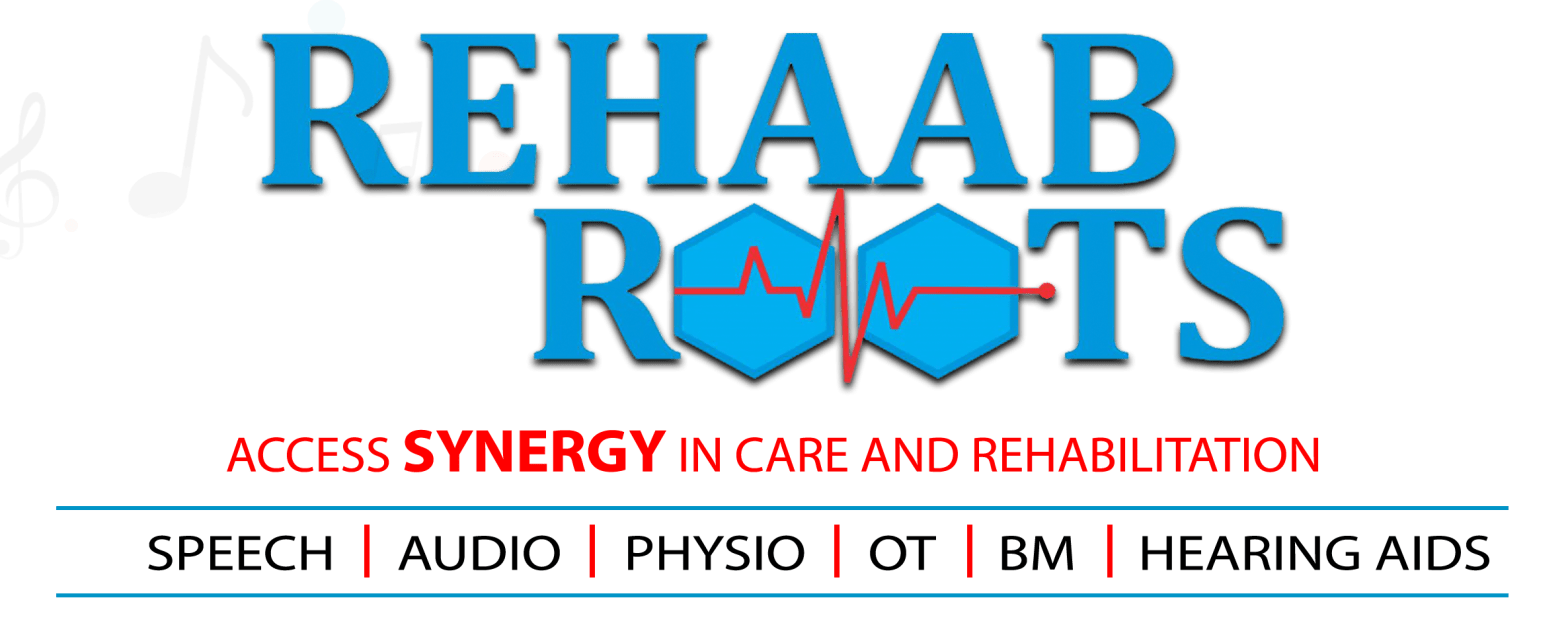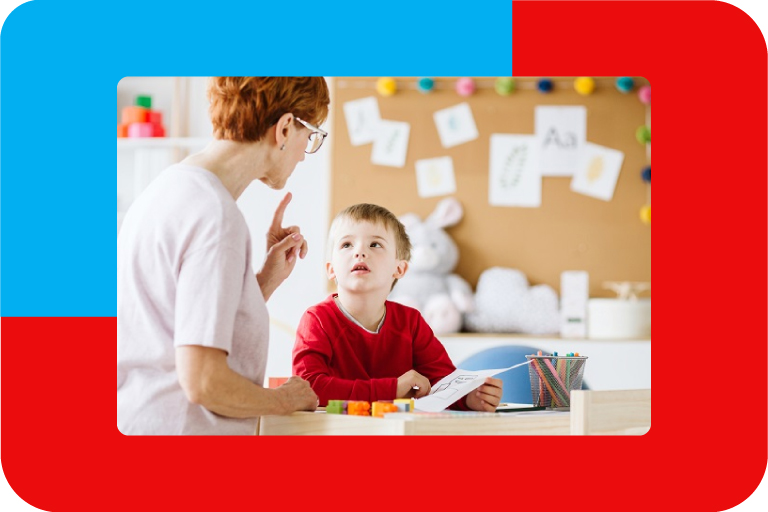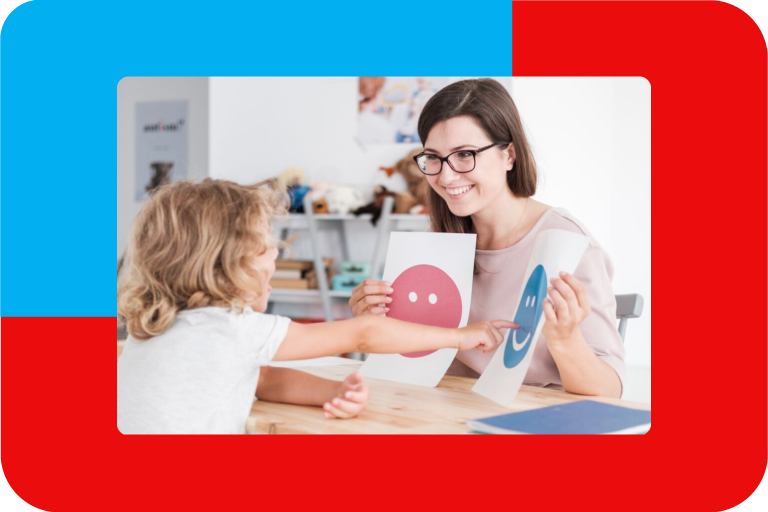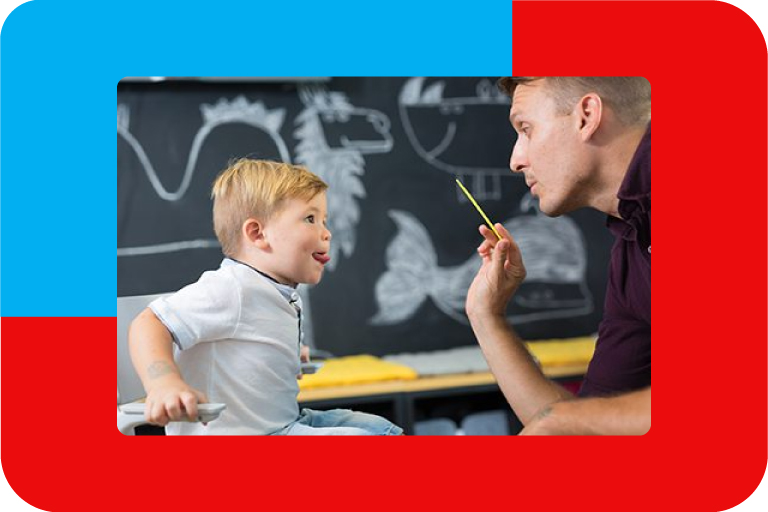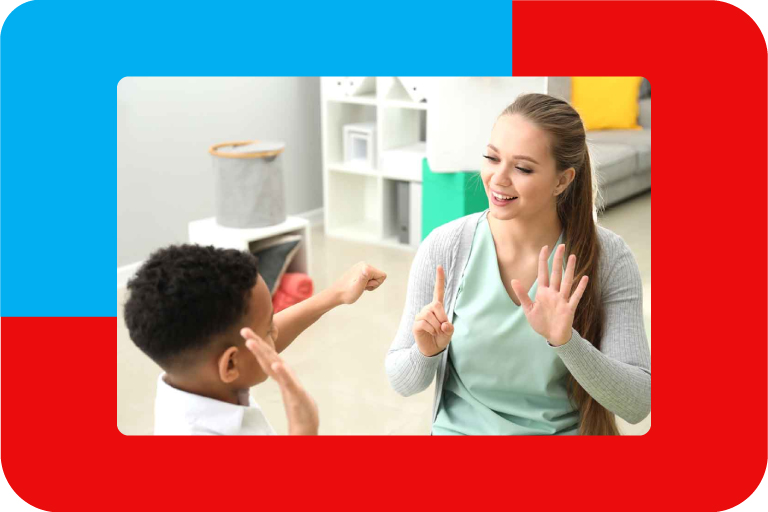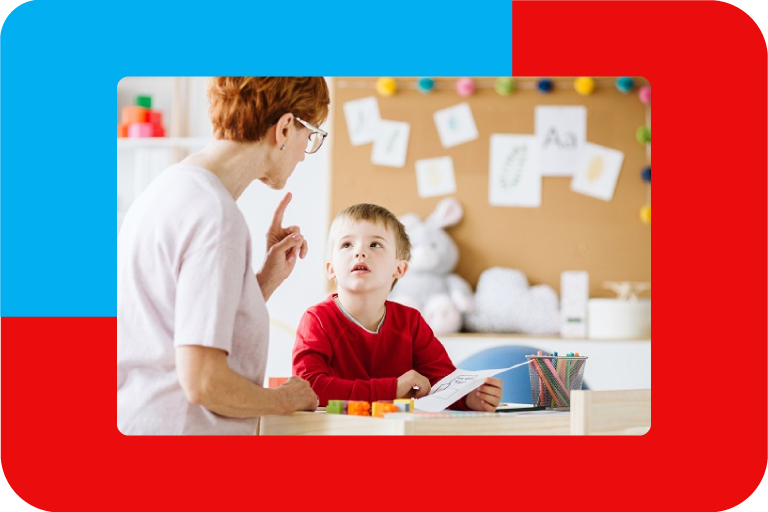
During your child’s evaluation, the therapist will watch him or her perform various tasks. The clinician will assess your child’s ability to:
- Understanding and application of various terms
- Correct application of words in properly formed sentences
- Application of language for various purposes
- Speech sound pronounciation.
- Physical ability to utter words.
- The sound quality.
- Speech fluency.
